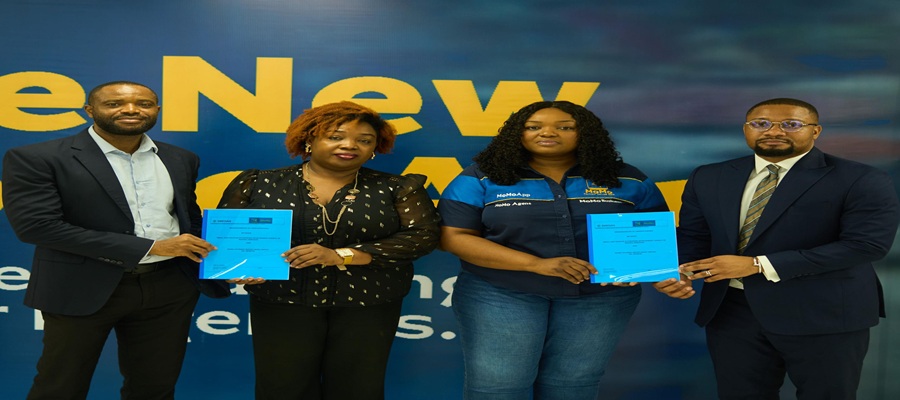Telecom
ATCON Urges NCC on IPv6 Migration Guidelines to Avoid Disaster

Association of Telecommunication Companies of Nigeria (ATCON) has urged the Nigeria Communications Commission (NCC) to set guidelines for the transition from Internet Protocol version 4 (IPv4) transition to v6 to ensure Nigerians enjoy the improvements to addressing, configuration and maintenance, and security of the internet.
Engineer LanreAjayi, ATCON, while speaking during network engineers’ training session, hosted by the Association in partnership with VDT Communications and AFRINIC, said though there are no deadline to IPv6 transition, but that the NCC can opt to set the tune to help bring the issue to the front-burner.
He cited Nigeria’s failure to meet the International Telecommunications Union (ITU’s) 2015 digital broadcasting transition and warned that it might be repeated with the IP version transition.
“NCC as a national Commission should cautiously rollout IPv6 transition policy. When they implement policies in that regards, it may set a deadline, particularly in the area of type approval. Therefore, they should begin to monitor the Original Equipment Manufacturers (OEMs) to ensure that technology equipment and devices imported into the Country are IPV6 complaint.
IPv6 represents the most recent version of the Internet Protocol (IP), the communications protocol that provides an identification and location system for computers on networks and routes traffic across the Internet.
On the disadvantages of not transiting to IPv6, Ajayi, added that Nigeria and most African nations, with consumerism posture, stand to lose their places in the internet community, “hence the OEMs after transiting will simply stop manufacturing them and we will be completely left out.
To ensure the message of IPv6 goes beyond the IT industry, he said that, more advocacy is needed.
However, Ajayi argued, although the Nigeria Internet Registration Association (NiRA) relevance in the push for migration cannot be voided, however, the onus does not lie squarely on the Association.
He said, “NiRA is not an IP Organisation, rather associated with domain name. NiRA is to name, AFRINIC is number. So, AFRINIC is responsible for issuing number to devices/individuals/organizations in the African region. It’s not within the purview of NiRA, but there is a relationship between domain names and IP numbers. IP number is compulsory for every device connected to the internet, but domain names are easier to remember.
For instance, CommunicationsWeek.com.ng is a name, but the server hosting the domain name has an IP addressed. So, it will be easier to remember CommunicationsWeek.com.ng than the IP number, probably, 000.123…
“NITDA also has a responsibility. Last year they supported in training engineers in readiness to the transition. As an IT development Agency NITDA has responsibility in anything that is IT related.
Telecom
MoMo PSB, SMEDAN Forge Pact to Digitise Nigeria’s SMEs

MoMo PSB, MTN Nigeria’s fintech powerhouse, sealed a game-changing pact with the Small and Medium Enterprises Development Agency of Nigeria (SMEDAN) on February 3 at its Victoria Island headquarters, unleashing digital and financial tools to turbocharge SMEs nationwide for seamless operations, revenue surges, and sustainable scaling.

MoMo PSB, SMEDAN
The partnership arms SMEDAN-registered merchants with MoMo’s multi-channel arsenal—apps, POS, USSD, partner portals, and custom platforms—to hoover payments across streams, automate payrolls, juggle tills and shop chains, and boss core business metrics from one slick dashboard.
This powerhouse duo targets Nigeria’s SME engine room, where digital chokepoints throttle growth, injecting MTN’s MoMo muscle to slash friction and unlock efficiencies for mama-put hustles to mid-tier factories alike.
Industry watchers hail the MoU as a masterstroke in President Tinubu’s economic revival playbook, fusing government SME scaffolding with private-sector fintech firepower to birth a new breed of digitally dominant entrepreneurs primed for AfCFTA conquests.
Telecom
MTN Ignites Teacher Revolution: 5,000 Digitally Armed for Phase Two

MTN Foundation and SAIL Innovation Lab have roared into Phase Two of their blockbuster Teachers Fellowship Programme, onboarding 5,000 elite educators from Nigeria’s 36 states and the FCT since January 13 to turbocharge public schools with cutting-edge digital wizardry and global teaching firepower.

MTN
This mobile-first crusade, laser-focused on arming primary and secondary school titans for the digital economy showdown, kicks off with a grueling four-week virtual bootcamp via WhatsApp and Google Classroom—slashing travel barriers for even the remotest rural warriors.
Organisers promise peer-to-peer fireworks and real-time gut-checks, capping Stage One with a virtual gala saluting milestones before culling the pack to a fierce “Top 500” via engagement, assessments, and hustle for Phase Two’s inquiry-based mastery and deep-dive digital metamorphosis.
MTN Foundation’s Executive Director Odunayo Sanya lit the fuse: “Teachers are the backbone of our education system. By empowering them with digital competencies and innovative teaching methods, we are directly investing in the future of our youth.
This Fellowship Programme is designed to ensure that our educators are not just keeping pace with global best practices but are actively shaping the next generation of innovators and leaders.”
Nigeria’s heftiest private teacher uprising scales from last year’s triumphs, minting classroom commandos as state ambassadors to ignite inquiry-driven, tech-fueled learning revolutions coast-to-coast.
Telecom
Onafriq, PAPSS Launch Wallet-Based Payments Pilot from Nigeria to Ghana

Onafriq Nigeria Payments Ltd, a CBN licenced payment service provider, partners with The Pan-African Payment and Settlement System (PAPSS) to pilot the continent’s first wallet-based outbound payments from Nigeria to Ghana – fully in Naira and instant, without relying on hard currency conversion, in partnership with Banks and Mobile Money Operators.

The pilot service, approved by the Central Bank of Nigeria (CBN), enables cross-border intra-Africa payments for individuals, merchants, and traders.
In particular, the service will benefit SMEs, the real engine of intra-African trade; all now have access to a faster, cheaper way to reach customers and suppliers across the border.
By reducing barriers to cross-border trade, the new service will allow these businesses to grow their addressable markets and activity. From the 1st of December, this service will be fully operational for a 6-month period.
Through the partnership with PAPSS, Onafriq is supporting the operationalization of the AfCFTA (Africa Continental Free Trade Area) mandate.
The mandate itself is driving tariff-free trade for the 54 member states of AfCFTA. Within the partnership itself, Onafriq provides the mobile money rails, with an ecosystem consisting of over 1 billion mobile wallets.
Meanwhile, PAPSS brings a network of over 160 commercial banks, representing an ecosystem of more than 400 million bank accounts across its 19 African countries of operation.
The two partners are essentially seamlessly connecting two worlds: mobile money and banking. As a consequence, intra-African trade transactions will take place more easily and opportunities will be created.
Currently, Africa is made up of bank and mobile-led markets, with siloes often inhibiting transactions between these economies. However, this partnership will remove these boundaries. With over one billion mobile wallets and 500 million bank wallets across Africa, this partnership will allow for cross-border collaboration at scale.
This partnership builds on Onafriq and PAPSS’ existing partnership for payments into Ghana, announced earlier this year.
Mxolisi Msutwana, Managing Director Anglophone West Africa said, “Our work with PAPSS shows what collaboration at scale can unlock—seamless, secure connections between banking systems and mobile money ecosystems.
“This is how we open bi-directional trade corridors, reduce costs for businesses, and give African enterprises the rails they need to trade with confidence in their own currencies. The vision is continental, but it starts with practical steps like this one.”
Ositadimma Ugwu, Chief Information Officer, PAPSS, added “Too often, African businesses and individuals see borders as roadblocks instead of opportunities. With this step, we’re challenging that mindset, giving Nigerians the ability to send value next door with the same ease as sending a text message.
“Our vision is simple: make Africa’s borders invisible to payments. This pilot makes that a reality, moving us closer to a continent where payments don’t pause at the border.”
This new Nigeria-to-Ghana outbound capability builds on the successful Ghana-to-Nigeria instant payments corridor launched earlier this year – further proof that Africa’s payments future is local, instant, and inclusive.

 E-Financial2 days ago
E-Financial2 days agoAccidental Billionaire Opts for Jail Instead of Returning Money Credited Him by Mistake

 News2 days ago
News2 days agoUS Set to Deport 79 Nigerians on Criminal List

 News2 days ago
News2 days agoUngoverned AI is Quietly Scaling Risk in Nigeria – Dr. Naiho

 E-Financial2 days ago
E-Financial2 days agoSEC Warns of Potential Ponzi-style Risks in AURUM BOT, ModMount

 Telecom2 days ago
Telecom2 days agoAirtel Nigeria Commits to Boosting Nigeria’s Digital Infrastructure

 Telecom2 days ago
Telecom2 days agoGoogle, African Partners Launch WAXAL to Empower 100m Africans in AI Era

 News2 days ago
News2 days agoFirst Lady Commissions Dream Centre @ OAU

 E-Business1 day ago
E-Business1 day agoOADC Lagos Reinforces Commitment to Local Data Hosting and Digital Transformation @ NDPC’s National Privacy Week Summit















